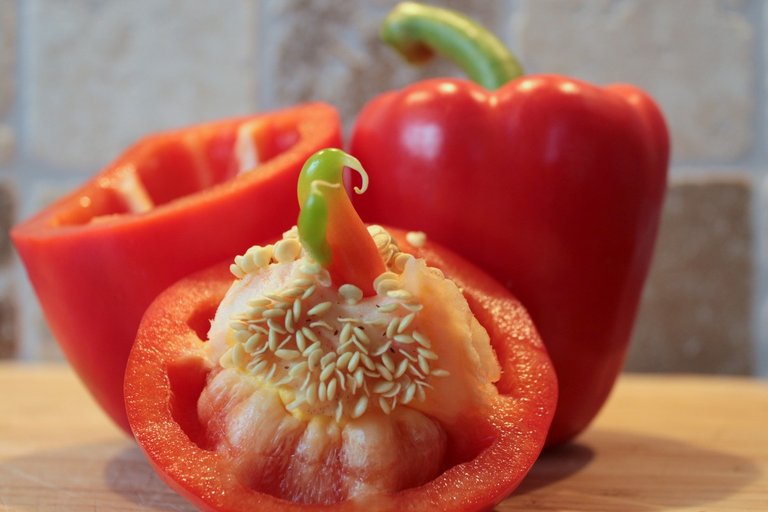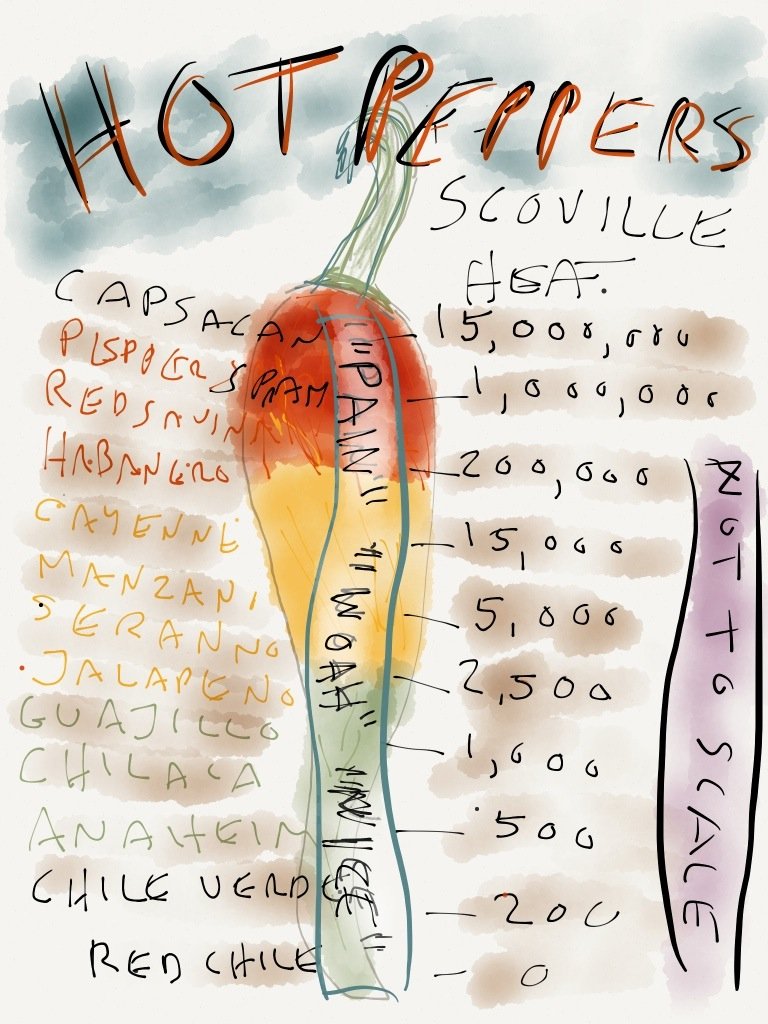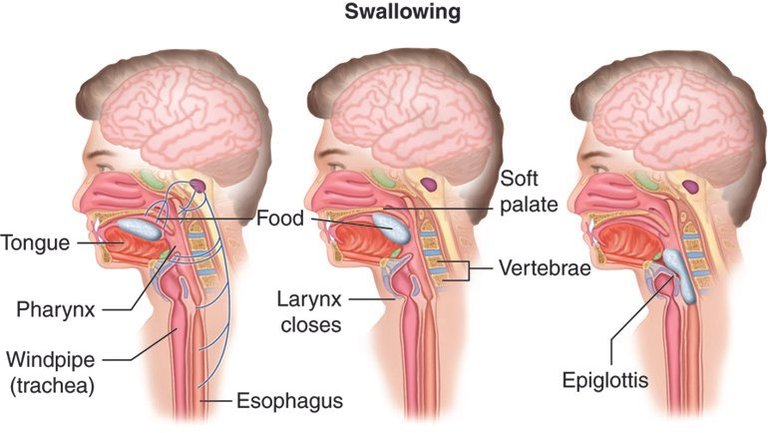Adverse Health Effect of the Hot Pepper Challenge
I watched a popular Nigerian Youtuber and skit maker who did the Spicy food challenge, and he did it along with other people and without any doubt, it got a lot of attention and traffic which made it look like people like to watch this challenge because no doubt it is entertaining and it comes with drama, and it is also hilarious seeing them go through the hot pain but then, it can be pretty dangerous and life-threatening sometimes. This life-threatening cases can range from heart attacks, to brain spasm, and torn esophagus and in very extreme cases, it can lead to death.
Okay! So what makes a pepper hot? This is the question that a lot of people ask and to answer this, all you have to do is to open a pepper. You see, the white part inside the pepper which is the placenta or the pith is responsible for the hotness of the pepper and this is because this is the part that contains the highest concentration of the chemical Capsaicin which is responsible for the hotness of pepper.
But wait, how do we identify the hotness of pepper? We do this using the Scoville scale. Different pepper fruit have different score with red chile and bell pepper having a score of 0, while pepper like Capsacan and Cayenne scoring over 15,000. Pepper has made it clear that bigger doesn't hotter, so when next you see a big pepper, it might not be hot but this doesn't mean some big peppers aren't hot. My mom would always say that the the smaller the Caribbean Red the hotter it would be, and it has always seem so when we are preparing meals. I do not know if it is a thing of the mind or this is just how it is but It is visible that most big pepper species aren't hot.
When you first eat hot pepper, there is this burning feeling, sensation and pain which is equivalent to setting the mouth on fire. Since most animals don't like the fire burning sensation in their mouth, so pepper developed the pepper defense mechanism capsaicin in other to prevent them from being eaten by animals.
In the mouth, Capsaicin activates the Transient Receptor Potential Vanilloid 1 (TRPV 1) which sends heat pain signals to the brain similar to when someone put hot coal on their tongue or hot water in their mouth. Upon triggering the TRPV 1 receptor, the signal reaches the hypothalamus which is responsible for body temperature regulation thereby causing the skin to begin to sweat because it sends an overheating signal.
https://img.goodfon.com/wallpaper/nbig/2/81/mouth-woman-teeth-chili.webp
goodfon
When you are eating peppery food and you are sweating, it isn't because you are hot, it is the brain making you think that you are hot. This signal after reaching the hypothalamus, goes to the limbic system which is responsible for response to threat as well as rewards. In the process of the body trying to save itself, fear and anxiety is triggered causing the adrenal glands to pump out adrenaline as the body is in a fight or flight mode.
If this continues, the brain soon begins to release natural pain killers known as Endorphins so you think this is over but it is actually not because our body is cabbage in, cabbage out. Whatever goes in comes out so it becomes a problem of passing out feces. The same receptor that is present in the mouth is present all through our guts. So the same pain is felt hen passing out feces.
Although, the pepper chemical Capsaicin isn't directly responsible for causing any problems when consumed, it is the physiological response to the pain that can have life-threatening consequences because of its intensity. People have suffered a lot of things when they decide to go on pepper competitions like that of a 47-year-old man which I placed a link to his case below who presented to the Emergency Department with chest pain and abdominal, after serious retching and vomiting when he ate ghost peppers in a contest.
The severe vomiting led to the rupture of his esophagus in a condition known as Boerhaave syndrome where there is intense pain and bleeding into the chest along with stomach acid, undigested food, as well as digestive enzymes. This can reach the heart leading to infection in the heart and in the blood vessels in the heart and chest region. When we breath, air can get into the lungs from the opening and compress the lungs since it isn't coming from the right entry leading to Subcutaneous emphysema.
Just as the digestive tract can be affected, so can the brain be affected. Another example is a case of a 34 year old man who suffered from thunderclap after eating Carolina pepper in a contest. After eating one, he began to feel an excruciating pain which sent to the ER and when he got there, scan showed that his brain had experienced spasm and the blood vessels in his brain had constricted, limiting blood to brain known as reversible cerebral vassal constriction syndrome, and this was as a result of the body releasing excessive adrenaline.
Remember that I mentioned that it can also lead to death? A good example is a case of a 25 year old man who suffered from acute myocardial infarction, and coronary vasospasm after consuming the Cayenne pepper pills to help him slim down. After taking the pills for 5 days, he began to experience pain develop from his chest to his left arm and then to his jaws. His heart blood vessels were constricting and this led to permanent damage parts of his heart and he wasn't lucky like the one of the patient who had the constriction with his brain. This constriction is very common with overdose of hard drugs like cocaine and I guess it is just one of the few cases were it has to do with the constriction of the heart blood vessels but as you know, once it happens once in science, it can happen again.
If these spicy contests or challenge can have this much effect on our health, then why do people get into them? I can only warn people to be careful of what they put into their mouth especially when they cause adverse effects. I remember the case of a boy on the news who died after eating pepper chips even though the cause of dead wasn't certain we cannot deny the fact that he died after eating the hot pepper chips.
Reference
https://pubmed.ncbi.nlm.nih.gov/3814133/
https://pubmed.ncbi.nlm.nih.gov/3375268/
https://pubmed.ncbi.nlm.nih.gov/27693067/
https://casereports.bmj.com/content/2018/bcr-2017-224085
https://intjem.biomedcentral.com/articles/10.1186/1865-1380-5-5
https://pmc.ncbi.nlm.nih.gov/articles/PMC7038135/



Sending Love and Ecency Curation Vote!
 Follow Eceny's curation trail to earn better APR on your own HP. : )
Follow Eceny's curation trail to earn better APR on your own HP. : )
Thanks for your contribution to the STEMsocial community. Feel free to join us on discord to get to know the rest of us!
Please consider delegating to the @stemsocial account (85% of the curation rewards are returned).
Thanks for including @stemsocial as a beneficiary, which gives you stronger support.